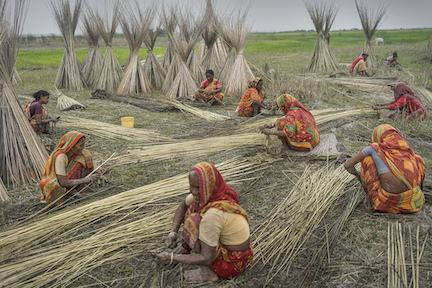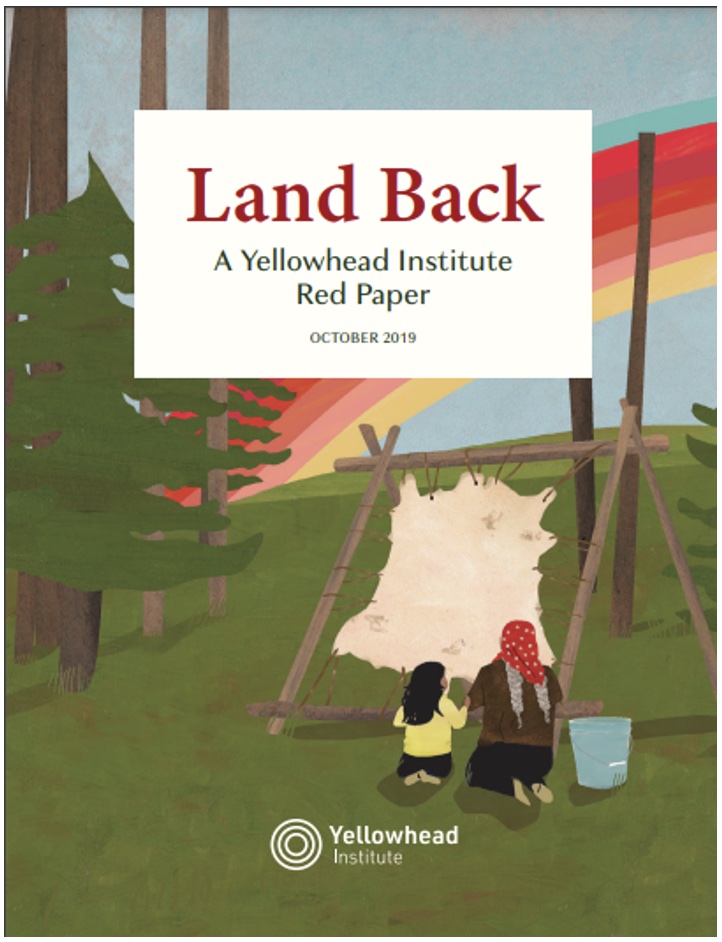Preeti Nayak, University of Toronto
Leading political geographer Farhana Sultana coined the term ‘climate coloniality’ to refer to the enduring legacies of colonialism and imperialism on vulnerable communities around the world. These legacies govern the ability of vulnerable communities to mitigate and adapt to climate change in the past, present, and future.
These communities – which include island nations, coastal communities, and Indigenous communities, to name a few – are more vulnerable to the impacts of climate change and yet, are often among the most underrepresented groups in climate policy decisions and strategic planning. This colonial system of climate governance structurally renders some lives and ecosystems more disposable over others (Sultana, 2022).
Western education systems are complicit in perpetuating climate coloniality because they privilege Eurocentric ways of knowing in virtually all levels of climate education planning. In addition, rarely do learners receive opportunities to engage with what climate injustice looks like, locally or globally, and especially in various locations across the Global South. Thus, part of dismantling climate coloniality in education must involve two major commitments: 1) a commitment to epistemic justice – that is, listening to and taking seriously Indigenous knowledges and other non-Western epistemologies in our understanding and teaching of climate change and 2) a commitment to supporting efforts to realize material justice (such as promoting land defense or equitable climate financing) for communities who stand to be the most affected by climate change (Sultana, 2022).
Below, I pose three questions that may help practitioners, curriculum developers, and policymakers consider how these two commitments to dismantling climate coloniality can be considered in various educational contexts.
1) Whose knowledge counts in shaping your understanding of climate change?
Climate change education in North America is a fragmented curricular landscape that has typically been dominated by Eurowestern approaches to science, alongside individual behaviour-change paradigms of education. The overemphasis of Eurocentric and technocratic narratives of climate change forecloses the possibility of framing, validating, and thinking about climate change through other systems of knowledge that hold alternative values, histories, and logics about the environment that can help us collectively move towards planetary repair and restoration. These knowledges, including Indigenous knowledges and marginalized knowledges from the Global South, come from communities with significant experience of living within healthy planetary boundaries by practising reciprocal relations with humans and more-than-humans (Lees & Bang, 2023). They also hold expertise in climate mitigation and adaptation, in part because they are already experiencing the worst effects of it (Selby & Kagawa, 2018).
Meaningful engagement with Indigenous knowledges in climate change education is already a key recommendation in several MECCE Project reports and papers, including in Ten Canadian Schools’ Stories of Climate Action and Sustainability as Wild Policy: Mobile SDG Interventions and Land-informed Policy in Education. Establishing meaningful local partnerships with Indigenous communities may mitigate against homogenizing Indigenous knowledges and applying extractive approaches to teaching and learning which divorce knowledge from the communities it comes from (Lees & Bang, 2023). Non-extractive approaches and partnerships may look like Indigenous-led land-based inquiries to help learners develop relationships with the natural world (Lees & Bang, 2023).

Photo credit: SUJAN SARKAR / Climate Visuals Countdown

Photo credit: US Department of Agriculture / Climate Visuals
2) Who is the expert in your teaching, curriculum, and policy circles?
Climate coloniality limits who gets a seat at the table when making important decisions regarding CCE. We can analyze the demographics of teachers, as one example of how a lack of diversity in education limits the transformative potential of CCE. The racial diversity of Canada’s teaching workforce has not kept up with the pace of – and this gap is in fact, widening (Ryan et al., 2009).
The lack of racialized teachers in schools is not a mere representation problem. It is a CCE problem. The lack of diversity within educational learning contexts limits opportunities to engage with diverse political and cultural perspectives of climate change derived from communities’ unique geopolitical lived experiences. For example, research shows that within multicultural classrooms, newcomers’ knowledge on climate change is often overlooked because environmental education is defined by Global North policy priorities (Walker, 2021). The discourses of these policy priorities frequently dismiss race, ethnicity, and migration status in analyzing climate change responses (Walker, 2021). Similarly, other studies show that newcomers in Global North contexts who retain close contact with ancestral countries are highly disposed to ‘pro-environmental’ practices. These pro-environmental behaviours have been adopted not because of a desire to develop a ‘pro-environmental’ disposition but rather through learned behaviours and attitudes formed by living in countries facing acute issues resource scarcity or environmental precarity (MacGregor, Walker, & Katz-Gerro, 2019). When Global North policy priorities permeate and narrow the frames of environmental and sustainability education (framings which are rarely disrupted by a predominantly White teaching force), important socio-political contexts of climate change disappear from the purview, thus perpetuating reductive understandings of environmentalism. Also, importantly, re-positioning diverse communities as climate change experts mitigates against deficit approaches of teaching and learning when engaging racialized and marginalized learners in CCE.
3) How can climate change education attend to the demands of material justice?
Research shows that climate change education can exacerbate youths’ feelings of distress and diminish hope. This is especially true of education that focuses too much on individual actions, which communicates that ‘fixing’ large-scale problems like climate change lies solely with them (Vamvalis, 2023). In considering how to be responsive to this context but also remain committed to teaching about the painful realities and histories of climate injustice, adopting educational approaches which engage learners with current climate wins and future-envisioning learning activities may underscore how social action can yield positive change (Selby & Kagawa, 2018).
To frame this within the context of decolonizing climate education, these wins should be ones that showcase the efforts led by communities who stand to be most affected by climate change. Examples of such engagement include teaching about Land Back or about the recent breakthrough United Nations agreement to establish a Loss and Damage fund for vulnerable countries. While these wins may be riddled with contention or further struggle, engaging learners with efforts led by vulnerable communities creates the groundwork to support the material demands of climate justice movements. Educational practices and projects which engage climate wins may also foster hope in an educational landscape that is increasingly marked by youth climate anxiety and grief; research shows a positive association between youth well-being and their engagement in social movements (Vamvalis, 2023).
There is growing evidence that ‘good’ climate change education should focus a range of learning dimensions: cognitive, socio-emotional, action-oriented, and justice-focused (see, for example, Hargis & McKenzie, 2020). This blog post focuses on how various educational stakeholders in formal and informal learning contexts can engage with the justice-focused dimension of climate change education.
Dismantling climate coloniality is a large educational project with many moving parts that require coordination across various communities and stakeholders. To adopt this ‘all hands-on deck’ approach, this important work in CCE cannot be done without thoughtfully considering the questions of whose knowledge counts, who is considered an expert, and what kinds of social and material changes are possible and worth fighting for.
About the Author

Preeti Nayak is a PhD candidate in the Department of Curriculum, Teaching and Learning at the Ontario Institute for Studies in Education (OISE), University of Toronto. Her research examines how racialized climate educators in Ontario enact climate justice pedagogies with youth in high schools and across community-based educational settings. Broadly, Preeti is interested in epistemic justice in climate curriculum work and identifying ways to build models of climate change education that meaningfully respond to the lived realities of marginalized learners. She can be reached at preeti.nayak@mail.utoronto.ca.
References
1. Hargis, K., Chopin, N., & McKenzie, M. (2018). Ten Canadian Schools’ Stories of Climate Action. Sustainability and Education Policy Network, University of Saskatchewan, Saskatoon, Canada.
2. Hargis, K., & McKenzie, M. (2020). Responding to Climate Change: A Primer for K-12 Education. The Sustainability and Education Policy Network, Saskatoon, Canada.
3. Lees, A., & Bang, M. (2023). Indigenous Pedagogies: Land, Water, and Kinship. OccasionalPaperSeries, 49. DOI: https://doi.org/10.58295/2375-3668.1500.
4. MacGregor, S., Walker, C., and Katz-Gerro, T. (2019). “‘It’s What I’ve Always Done’: Continuity and Change in the Household Sustainability Practices of Somali Immigrants in the UK.” Geoforum; Journal of Physical, Human, and Regional Geosciences, 107: 143–153. doi:10.1016/j.geoforum.2019.09.013.
5. Ryan, J., Pollock, K., & Antonelli, F. (2009). Teacher Diversity in Canada: Leaky Pipelines, Bottlenecks, and Glass Ceilings. Canadian Journal of Education, 32(3), 591–617.
6. Selby, D., & Kagawa, F. (2018). Teetering on the Brink: Subversive and Restorative Learning in Times of Climate Turmoil and Disaster. Journal of Transformative Education, 16(4), 302–322. https://doi.org/10.1177/1541344618782441.
7. Sultana, F. (2022). The unbearable heaviness of climate coloniality. Political Geography, 99, 102638–. https://doi.org/10.1016/j.polgeo.2022.102638
8. Vamvalis, M. (2023). “We’re fighting for our lives”: Centering affective, collective and systemic approaches to climate justice education as a youth mental health imperative. Research in Education (Manchester). https://doi.org/10.1177/00345237231160090.
9. Walker, C. (2021) ‘Generation Z’ and ‘second generation’: An agenda for learning from cross-cultural negotiations of the climate crisis in the lives of second generation immigrants. Children’s Geographies, 19(3), 267-274, DOI: 10.1080/14733285.2020.1817334.

